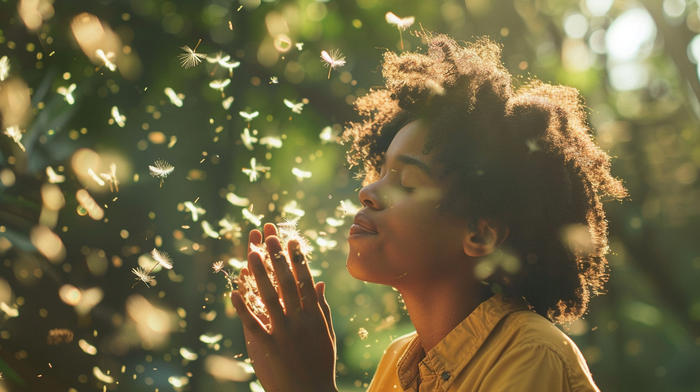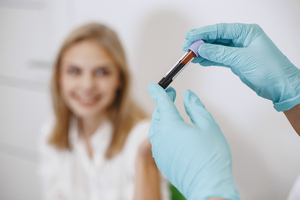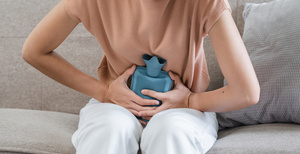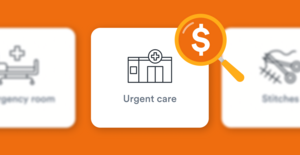Key points
- Pollen allergies, often triggered by tree, grass, and weed pollen, are common and can cause discomfort.
- Symptoms of pollen allergies include sneezing, itchy eyes, nasal congestion, and respiratory discomfort.
- Pollen allergies can be diagnosed through skin prick tests or blood tests.
- Treatments for pollen allergies range from over-the-counter medications to immunotherapy and home remedies.
- Reducing exposure to pollen, such as using air filters and avoiding outdoor activities during high pollen seasons, can also help manage symptoms.

Pollen is one of the most common allergy triggers, according to the Allergy and Asthma Foundation of America (AAFA). Pollen allergies are often triggered by exposure to tree pollen, grass pollen, and weed pollen. This is why springtime a miserable time for people with pollen allergies.
As the arrival of spring brings an abundance of pollen into the air. Fortunately, various treatments are available to alleviate the discomfort caused by pollen allergies. From over-the-counter medications to immunotherapy, there are numerous options to help you manage and even reduce your allergic reaction to pollen.
Continue reading to learn about different treatments and strategies that can provide relief for those suffering from pollen allergies.
What Is Pollen?
Pollen is a fine powder consisting of microscopic grains that is produced by the male reproductive organs of flowering plants. It plays a crucial role in the pollination (reproduction) of plants and flowers. Pollen is dispersed by the wind, insects, birds, or other animals, and it is a common trigger for seasonal allergies in many people. Tree pollen, grass pollen, and weed pollen are among the most prevalent sources of allergens, according to the AAFA.
What Are the Types of Pollen Allergy?
Pollen allergies are also known as hay fever or allergic rhinitis. They can be triggered by various types of pollen, according to the AAFA. They explain that the most common types of pollen that cause allergic reactions in individuals include:
-
Tree pollen, such as oak, cedar, birch, and pine
-
Grass pollen, such as ryegrass, timothy grass, and Bermuda grass
-
Weed pollen, such as ragweed, sagebrush, and pigweed
-
Flower pollen, such as wildflowers
These different types of pollen can lead to a range of allergic symptoms, including sneezing, itchy eyes, nasal congestion, and respiratory discomfort. Understanding the specific types of pollen that trigger your allergies is important for finding the treatment that works best for you.
What Are the Symptoms of Pollen Allergy?
People with pollen allergies usually only have symptoms when they are exposed to the pollen that they are allergic to. This is why “allergy season” is so difficult for some. The common symptoms of a pollen allergy, according to the AAFA, include:
-
Runny nose, stuffy nose, or nasal congestion
-
Sneezing
-
Itchy nose, eyes, ears, and mouth
-
Red and watery eyes
-
Swelling or dark circles around the eyes
-
Difficulty sleeping
-
Coughing or wheezing (especially if you have asthma)
How Is Pollen Allergy Diagnosed?
There are two common ways that a pollen allergy is diagnosed, according to the AAFA; a skin prick test and a blood test.
Skin prick test
The skin prick test is the most common type of test for allergies, according to the AAFA. During this test, small amounts of pollen from different sources are placed below the skin’s outer layer using a special device. Afterward, you are observed for any skin reactions, like redness, itchiness, swelling, hives, or raised bumps.
Pollen allergy blood test
A pollen allergy blood test is done by collecting a blood sample and then mixing a pollen allergen in the blood and watching for a reaction, according to the AAFA.
This test may take longer to get results than the skin prick test, but it is a good alternative for those who are unable to do a skin prick test, according to the AAFA. Possible reasons that you may not be able to do a skin prick test is if you have certain skin conditions, they note.
How is Pollen Allergy Treated?
There are several treatments for pollen allergies. Some home remedies and over-the-counter options include:
-
Antihistamines can help alleviate symptoms like sneezing, runny nose, and itchy eyes.
-
Over-the-counter nasal sprays and eye drops can help reduce nasal congestion and itchy eyes.
-
Inhaling steam from a bowl of hot water or taking a hot shower can help clear nasal passages and ease congestion.
-
Trying home remedies like local honey, probiotics, and vitamin C can help relieve your allergy symptoms.
Decreasing Your Exposure to Pollen
Decreasing your exposure to pollen can greatly reduce your allergies. Try these tips from Healthline:
-
Minimize your exposure to allergens by using air filters, regularly cleaning and dusting the home, and keeping windows closed during high pollen seasons. You can also watch your local pollen counts and avoid doing outdoor activities when pollen levels are high.
-
Irrigate your nasal passages using a saline solution to help remove allergens and ease congestion.
-
Identifying and avoiding specific allergens, such as pet dander, pollen, or dust mites.
-
https://www.solvhealth.com/dir... steam from a bowl of hot water or taking a hot shower can help clear nasal passages and alleviate congestion.
-
Using allergen-proof pillows and mattress covers can help reduce exposure to dust mites and their allergens.
-
Using a vacuum cleaner with a high-efficiency particulate air (HEPA) filter can help remove allergens from carpets and upholstery.
-
Disposable nasal filters can help trap airborne allergens before they enter the nasal passages.
-
Some individuals find relief from allergies by following an anti-inflammatory diet and avoiding certain foods that may exacerbate symptoms, according to Healthline.
If your pollen allergy symptoms are still bothering you, you can get stronger treatments from your doctor, including immunotherapy, according to the American College of Allergy, Asthma, and Immunology (ACAAI). They note that there are two common types of allergy treatments:
-
Allergy shots that help your body build up a resistance to pollens.
-
Prescription-strength allergy medicine.
If your pollen allergy symptoms are interfering with your daily life, consider going to your nearest urgent care clinic for treatment.
For a medical emergency, dial 911 or visit your closest emergency room immediately.
FAQs
What is pollen and why does it cause allergies?
Pollen is a fine powder produced by plants for reproduction. It is dispersed by wind, insects, and animals, and can trigger seasonal allergies in many people.
What are the common symptoms of pollen allergies?
Common symptoms include runny or stuffy nose, sneezing, itchy eyes, ears, and mouth, red and watery eyes, and difficulty sleeping.
How are pollen allergies diagnosed?
Pollen allergies are typically diagnosed through a skin prick test or a blood test, depending on the individual's specific conditions and reactions.
What are some treatments for pollen allergies?
Treatments include over-the-counter medications like antihistamines, nasal sprays, and eye drops, home remedies like inhaling steam or taking local honey, and medical treatments like immunotherapy.
How can I reduce my exposure to pollen and alleviate my allergy symptoms?
You can reduce your exposure to pollen by using air filters, cleaning and dusting your home regularly, keeping windows closed during high pollen seasons, and avoiding outdoor activities when pollen levels are high.









